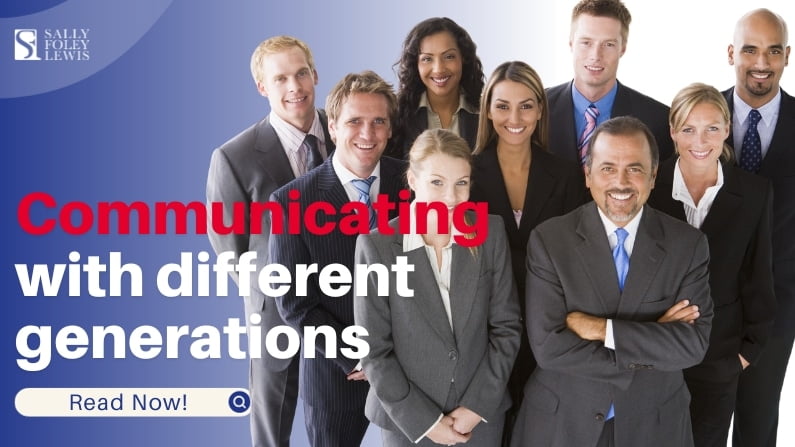Do you have five generations working in your workplace? If not, do you know how many currently work in your workplace? How many generations do you lead and manage?
I’ve recently learned, and have to say, I’m not that impressed with one of the newer names given to the Traditionalists. I grew up knowing them as Traditionalists, essentially, my grandparents. I have recently learned they are also called the Silent Generation – that saddens me.
It tells me that each of our generation will become a silent one. I guess, you better make the most of it while you can, right?!?!
And to make the most of your own generation as well as managing leading all generations – traditionalists, baby boomers, Generation X (Gen X), millennials, and Generation Z (Gen Z) – your communication is essential.
Challenge: Effective Communication in a Multigenerational Workforce
Effective communication in a multigenerational workforce is a challenge that middle managers often encounter. With multiple generations possessing distinct communication preferences, work styles and values, bridging these gaps can be complex.
As a middle manager, you must navigate a diverse range of communication tools and strategies to ensure everyone on your team feels heard, respected and motivated. Whether it’s adapting to traditional face-to-face interactions prefered by older employees or embracing digital channels favoured by younger team members, you need to master the art of tailoring your communication to suit various generational needs. This challenge presents an opportunity for middle managers to become adept communicators, fostering an inclusive and harmonious work environment that brings out the best in all generations.
Opportunity 1: Generational Awareness
As a middle manager, you have a unique chance to excel by developing generational awareness. Your workforce spans multiple generations, each with its own communication preferences, work styles and values. Understanding these differences can be a game-changer when it comes to effective interactions.
For instance, Baby Boomers often appreciate face-to-face meetings and formal communication, while Millennials and Gen Z might prefer digital platforms and quick, concise messages. By tailoring your communication styles to match the preferences of your team members, you can foster better relationships, collaboration, and productivity.
To support this effort, consider advocating for generational diversity training within your organisation. These programmes can provide valuable insights into the characteristics and communication styles of each generation, helping you bridge gaps and create a more harmonious work environment.
Opportunity 2: Mentoring and Reverse Mentoring
Another fantastic way for middle managers to thrive in a multigenerational workforce is by promoting mentoring programs that span generations. These programs have two significant benefits: knowledge sharing and fresh perspectives.
Firstly, older employees possess a wealth of industry knowledge and experience. Encouraging them to mentor younger colleagues can facilitate the transfer of valuable insights, helping younger team members grow professionally.
Conversely, younger employees can offer fresh perspectives on emerging trends, technologies and innovative approaches. This reverse mentoring not only benefits middle managers but also helps senior team members stay updated and engaged.
To make this happen, advocate for your organisation to facilitate these mentoring relationships. Encourage leadership to formalise programs that pair employees from different generations. By fostering these cross-generational connections, you can create a workplace that thrives on shared knowledge and diverse viewpoints.
In conclusion, effective communication in a multigenerational workforce is not just a challenge; it’s a significant opportunity for you to shine. By developing generational awareness and advocating for mentoring programs, you can bridge generational gaps, enhance collaboration and create a more inclusive and innovative workplace.
I’d love to hear your thoughts on this topic. Have you encountered any successful strategies for effective communication in your multigenerational teams? Share your insights with me, and let’s continue to learn and grow together.




